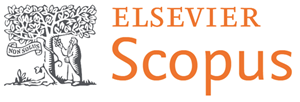The Resilience of Tourism at Georgetown Heritage Sites: Insights from Local Community Engagement During Covid-19 Pandemic
DOI:
https://doi.org/10.24191/bej.v21iSI.1527Keywords:
Covid-19, Heritage Site, Local Community, Resilience, TourismAbstract
The Coronavirus Disease 2019 (COVID-19) virus rapidly spread worldwide, evolving into a significant pandemic that has impacted nearly every country. Georgetown, as a heritage site, has witnessed distinct effects of the crisis on cultural heritage sites and stakeholders, along with various economic implications. The primary impact on this heritage site has been a decline in visitor numbers due to government-imposed preventive measures such as movement restrictions. These measures have significantly affected the tourism sector's economy. However, local community engagement was insufficient during the strategic planning for tourism development at heritage sites. This research aims to understand the involvement of the local community in heritage sites at Georgetown during COVID-19. Specifically, the objective is to identify the challenges faced by the local community and tourism at heritage sites during COVID-19. This study utilised a quantitative approach by collecting data through an online survey questionnaire. Data analysis was conducted using SPSS (Statistical Package for the Social Sciences), which revealed the challenges and opportunities posed by the pandemic at heritage sites. The findings underscored the importance of strong collaboration between the local community and authorities during the COVID-19 pandemic. Additionally, promoting domestic tourism among residents can help sustain cultural heritage and sensitivity. Organisations and management should prioritise strategies for engaging with the local community to sustain tourism at heritage sites while preserving and conserving their historical value.
References
Catherine Tymkiw. (2021). How COVID-19 Changed Our Saving and Spending Habits, 28 September 2021. Retrieved website from https://www.investopedia.com
Filep, S. (2007). 'Flow', sightseeing, satisfaction and personal development: exploring relationships via positive psychology. CAUTHE 2007 Conference. Retrieved website from https://eprints.jcu.edu.au/3194/
ILO, FAO. (2020). Impact of COVID-19 on people’s livelihoods, their health, and our food systems, 13 October 2020. Retrieved website from https://www.who.int/news/item/13-10-2020-impact-of-covid-19-on-people's-livelihoods-their-health-and-our-food-systems
Lee Siu Ming and Yeong Pey Jung (2021). Persevering towards Recovery for Penang’s Tourism Industry, 27 July 2021. Retrieved website from https://penanginstitute.org/publications/issues/persevering-towards-recovery-for-penangs-tourism-industry/
Lim Sok Swan. (2020). Covid-19 Hits the Heart of George Town: A Survey of the Economic Situation of Old Trades in the Historic City, 16 June 2020. Retrieved website from https://penanginstitute.org/publications/covid-19-crisis-assessments/covid-19-hits-the-heart-of-george-town-a-survey-of-the-economic-situation-of-old-trades-in-the-historic-city/
Marco Ferrarese. (2021). Georgetown is back to being a backwater, 13 March 2021, Retrieved website from https://www.todayonline.com/world
Mayo Foundation for Medical Education and Research (MFMER) (2020). Retrieved website from https://www.mayoclinic.org/diseases-conditions
Pasquinelli, C., Trunfio, M., Bellini, N., Rossi, S (2021). Sustainability in over touristified cities? A social media insight into Italian branding responses to COVID-19 crisis. Sustainability 2021 (13), 1848. https://doi.org/10.3390/su13041848
UNWTO (2020). Tourism and coronavirus disease (COVID-19). Retrieved on 13 July 2020, www.unwto.org/tourism-covid-19-coronavirus.
UNWTO (2021). Tourism and COVID-19–Unprecedented economic impacts. Retrieve website from https://www.unwto.org/tourism-and-covid-19-unprecedented-economic-impacts.
Downloads
Published
Versions
- 01-05-2025 (2)
- 05-10-2024 (1)
Issue
Section
License
Copyright (c) 2024 Ahmad Nazrin Aris Anuar, Nor Izzatie Rahmat, Che Bon Ahmad, Rabiatul Adawiyah Nasir, Ainur Zaireen Zainuddin

This work is licensed under a Creative Commons Attribution-NonCommercial-NoDerivatives 4.0 International License.
CC BY-NC-ND 4.0 DEED
Attribution-NonCommercial-NoDerivs 4.0 International















